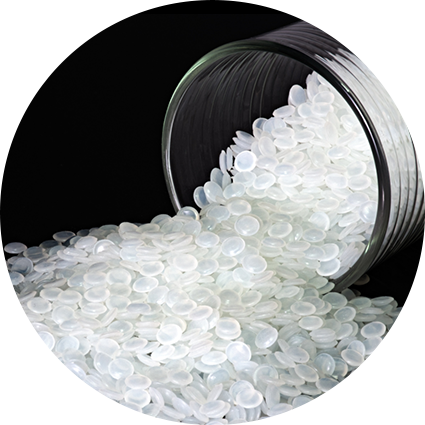In the global fight against plastic pollution, biodegradable materials are seen as a glimmer of hope. However, not all materials that claim to be "biodegradable" can decompose without residue in the natural environment. The breakthrough of Fully Biodegradable Polyester Modified Material is aimed at fundamentally solving this pain point. It not only partially degrades under specific conditions, but also pursues complete biological cycling in the natural environment.
Beyond tradition: a revolutionary leap from "biodegradable" to "fully biodegradable"
The core value of fully biodegradable polyester modified materials lies in their ability to be fully biodegradable. This is fundamentally different from traditional oxidative degradable plastics or partially biodegradable plastics.
The limitations of traditional materials such as PLA: Many materials require specific conditions for industrial composting (50-60 ° C) to degrade, and the degradation rate is extremely slow or even impossible to completely decompose in natural soil or oceans.
Advantages of this material: Through advanced polyester modified technology, the material can be completely decomposed by microorganisms into carbon dioxide, water, and biomass under a wider range of environmental conditions (such as soil, seawater, and household compost), without leaving any microplastic residues, truly achieving a green closed-loop from cradle to grave.
Excellent performance: engineering breakthrough that balances environmental protection and practicality
If environmentally friendly materials cannot meet practical needs, it will be difficult to promote them on a large scale. This material successfully breaks the bias of "environmental protection equals weak performance" and achieves performance optimization through modification.
Excellent processing adaptability: With good film-forming and injection molding properties, it can be directly applied to existing plastic processing equipment (such as blown film machines and injection molding machines) without requiring huge equipment investment, greatly reducing the production conversion threshold for downstream manufacturers.
Reliable mechanical performance: Through modification, its key indicators such as mechanical properties, heat resistance, and tensile strength can be comparable to traditional general-purpose plastics, and can meet the strength requirements of most daily consumer goods and packaging materials.
Adjustable degradation cycle: The degradation rate can be adjusted through formula technology according to the needs of different product usage scenarios (such as short-term packaging, long-term agricultural film), achieving a perfect balance between functionality and environmental protection.
Widely used: providing green transformation keys for various industries
The excellent versatility of this material makes it an ideal choice to replace traditional non degradable plastics across multiple key fields such as packaging, agriculture, textiles, and consumer goods. Its unique advantages of functionality, economy, and environmental friendliness provide unprecedented commercial solutions for green transformation in different industries.
Green packaging: Supermarket shopping bags, roll up bags, food packaging films, express bags, disposable tableware, etc., are the main force in solving disposable plastic pollution.
In the agricultural field: agricultural film, seedling bowl, straps, etc. After use, it can be directly degraded in the soil without the need for recycling, completely solving the problem of agricultural non-point source pollution.
Textile fibers: Produce biodegradable textile fibers for environmentally friendly clothing, non-woven fabrics, etc.
In the field of consumer goods, such as toys, hotel supplies, 3D printed wires, etc., we provide brand owners with the possibility of creating environmentally friendly products throughout their entire lifecycle.
Overview of Core Performance Parameters
| Performance Parameter |
Description |
| Product Name |
Fully Biodegradable Polyester Modified Material |
| Degradation Characteristics |
Fully biodegradable in natural environments (e.g., soil, seawater) without microplastic residues |
| Main Components |
Modified from fully biodegradable polyesters (e.g., PBAT, PBS, PHA) |
| Performance |
Excellent processability, mechanical properties, and adjustable degradation cycle |
| Eco-Certifications |
International certifications obtainable (e.g., DIN-Geprüft Industrially Compostable (Germany), BPI (USA), ABA (Australia)) |
| Application Fields |
Eco-friendly packaging, agricultural mulch films, disposable products, biodegradable fibers, etc. |










